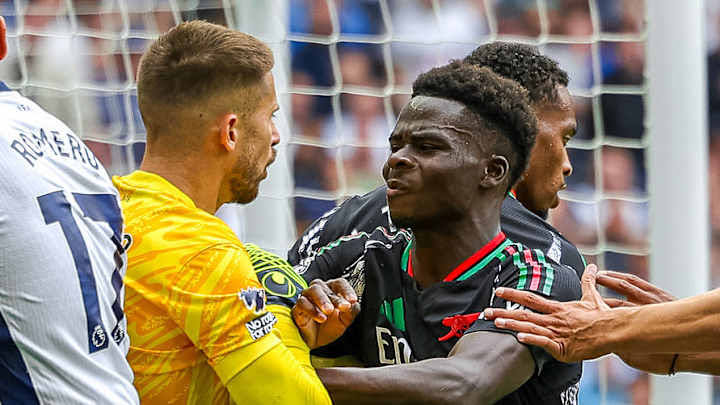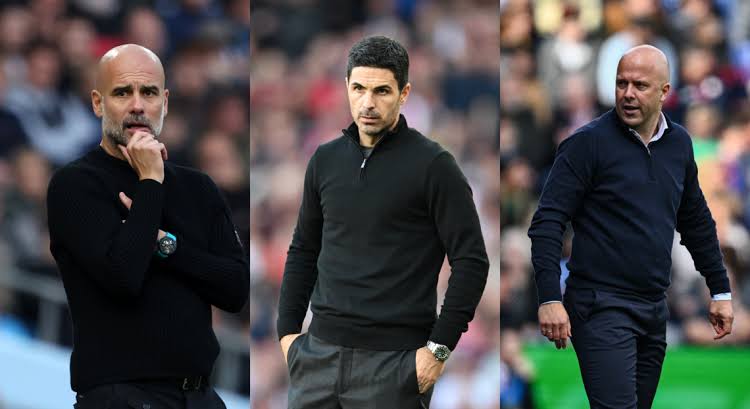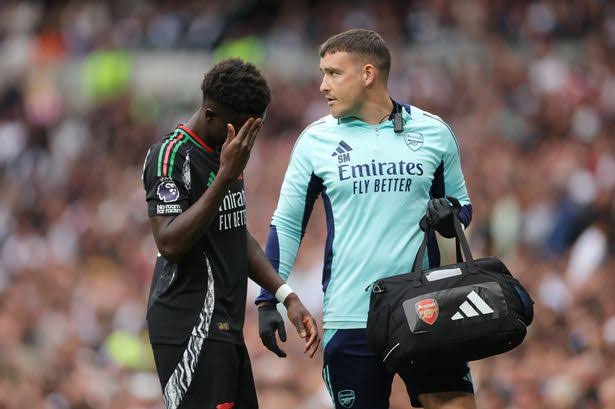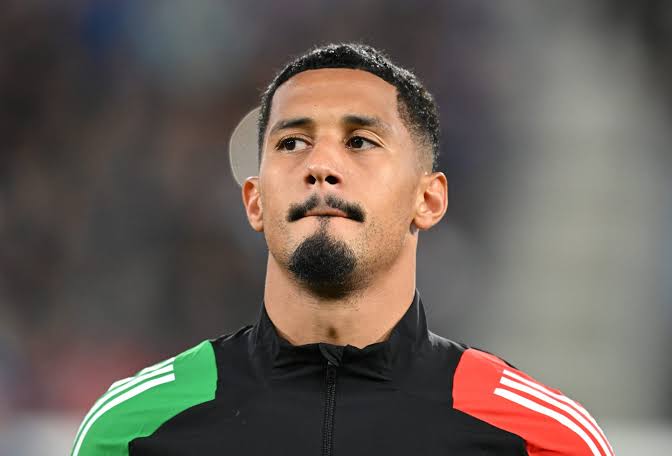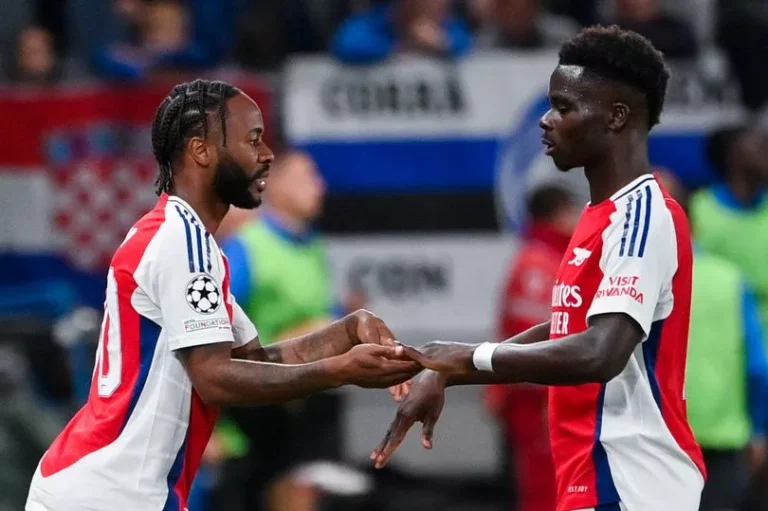The Kai Havertz moment Man City couldn’t stop as shock Arsenal U-turn changes Mikel Arteta plan
When so much happens in 98 minutes (which is actually more like 105 minutes due to first-half stoppage time) it is hard to draw firm conclusions about just what led to the total drama of Manchester City vs Arsenal. But one thing is for sure: Nobody was expecting it.
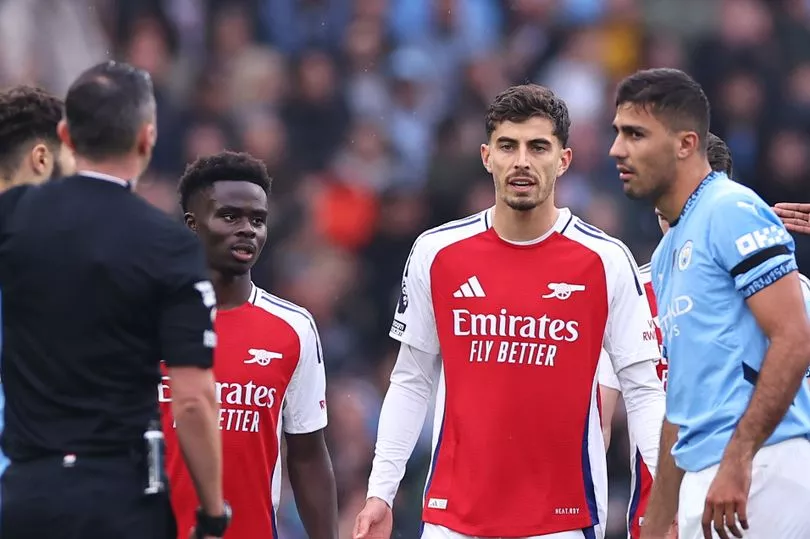
After two drab matches between the Premier League’s now-defined top dogs last season, more of the same was on the cards. Arsenal and City were destined to simply cancel each other out. It’s what happens when the margins get so fine and both teams end up with a target-man striker plus a team of centre-backs.
Just look at the starting XIs again for a second. Jurrien Timber, a right-back shifted to left-back and then back to right-back again was signed as a possible centre-back. Riccardo Calafiori, a left-back able to play centre-back, on the opposite side. Central pairings do not get much bigger currently than Gabriel Magalhaes and William Saliba.
Declan Rice in front of them is a former centre-back himself and Thomas Partey is a big guy. Kai Havertz is six foot four tall. That’s just Arsenal.
It’s no surprise that in Arteta’s pragmatism-first style, Arsenal don’t concede many goals. Who can blame them? Free-flowing football in the 2022/23 season got them top but a leaky defence in the absence of key players cost them the title. The same mistake wasn’t to be made again.
Safety first it is. Pep Guardiola has done similarly at City as he builds around a unit of units. With neither side wanting to give up an advantage, it is forgivable even with hindsight to have pencilled in a lot of social media scrolling and cup-of-tea-making during Sunday’s late kick-off.
It only took seconds for a dreary and downright bleak Manchester afternoon to have watchers sitting up though. Only one player (Bernardo Silva), had actually touched the ball before the game sparked into life.
Through cup meetings and crucial Premier League title matches there had been more respect than needle between these two sides. Erling Haaland-led full-time scuffles and some VAR drama aside, this hasn’t been much of a flashpoint rivalry so far.
Then Kai Havertz bodied Rodri. In a totally unnecessary series of events, what could have been another long-ball, defence-first, dull encounter, exploded into life.
Here is what definitely happens, because the rest becomes a bit too much to follow at times: Rodri stands his ground as Havertz ambles into the City half in an attempt to put some pressure on Ederson, who is yet to even receive Silva’s pass from kick-off. Havertz runs into the path of Rodri, who is faking to move into the German. Rodri feels the full force of Havertz, who appears to lead his left shoulder into the chest of City’s playmaker.
It might be a step too far to suggest that Havertz alone caused what was to follow in this unpredictable and fiery match, but it was certainly the first of a series of incidents that haven’t exactly been bubbling under the surface. It is therefore right to look at just whether Arsenal actually wanted this sort of thing to happen.
In Arteta’s ideal world Arsenal would have repeated their north London derby exploits. His defence will have held firm, a counter-attack in the space left by City’s increased territorial dominance provides fleeting chances to unleash Bukayo Saka, Gabriel Martinelli, Leandro Trossard, and Havertz himself.
At worst, a set piece offers another route to goal. If nothing else, Arsenal’s mean backline keeps things tight and they leave with a 0-0 draw and go again, still undefeated and having frustrated City once more.
Instead, what follows Havertz and Rodri’s coming together is a determined response. Haaland has put the hosts ahead after just seven minutes of actual play, and Arsenal are on the ropes against a team buoyed by scoring in a big game.
There are now challenges on a wet surface being put in. The tension and stakes are that much higher because if Arsenal concede again they face a five-point deficit to the unchaseables already.
Havertz can’t have caused this directly, can he? Would the game have been so charged with anger if he hadn’t been involved with Rodri, a player so loved and protected by City? It’s impossible to know, but it cannot have helped.
Arsenal needed a calm game, a low-key affair. They took the sting out of Tottenham last week but lost grips on the atmosphere before even having a chance.
It mirrors and incident between Granit Xhaka and Trent Alexander-Arnold in a pivotal clash 18 months ago. Having bossed the game at Anfield, a flareup between the two turned the crowd and Liverpool came from 2-0 to draw. Arsenal never really responded in the title race and crumbled during the weeks that followed.
This is a different Arsenal. They are stronger both physically and mentally, able to repel noise and opponents. But there was a sense of similarity at the Etihad Stadium. In a game that it felt City would have to win (because Arsenal are the best team in the world at not losing right now), the pendulum started to swing when Arteta really wanted it to stay still.
Ultimately Arsenal still took a point from this game. It is a point they would have accepted beforehand and almost certainly at half-time when down to 10 men. But having worked themselves into the lead in such tough circumstances, ask Arteta if he would have accepted one point rather than three ahead of Trossard being sent off and the answer would surely be no.
Arsenal would back themselves to do something they haven’t in over nine years and win away to City. At the risk of looking too deeply, maybe even the red card itself can be traced back to the Havertz body check.
With so many different moments occurring during this game it’s impossible to know just what impact they each had on each other. Is there really a correlation between Havertz and Rodri wrestling to Trossard kicking a ball away over 50 minutes later? Perhaps. Correlation is not causation but there is an overlap in how things unfolded, and it all came from one point we can see.
Should the game have not been as hotly contested then the brain fade that followed before half-time from Trossard might not have been so dramatic. It was unquestionably a silly decision to give Michael Oliver a decision to make in the moment, no matter if it was harsh or inconsistent.
That is the point of the game that things really, tangibly changed. Even that level of drama, let alone what had come before and what was to follow, was not on the cards at the start though and once Havertz got involved with Rodri a cauldron of emotion shifted the dynamics of the afternoon.
He may not have completed a single pass on the afternoon but Havertz sure did make a big splash in Manchester. For those who turned on the game fearing the worst of a Super Sunday, it was a blessing in disguise.
